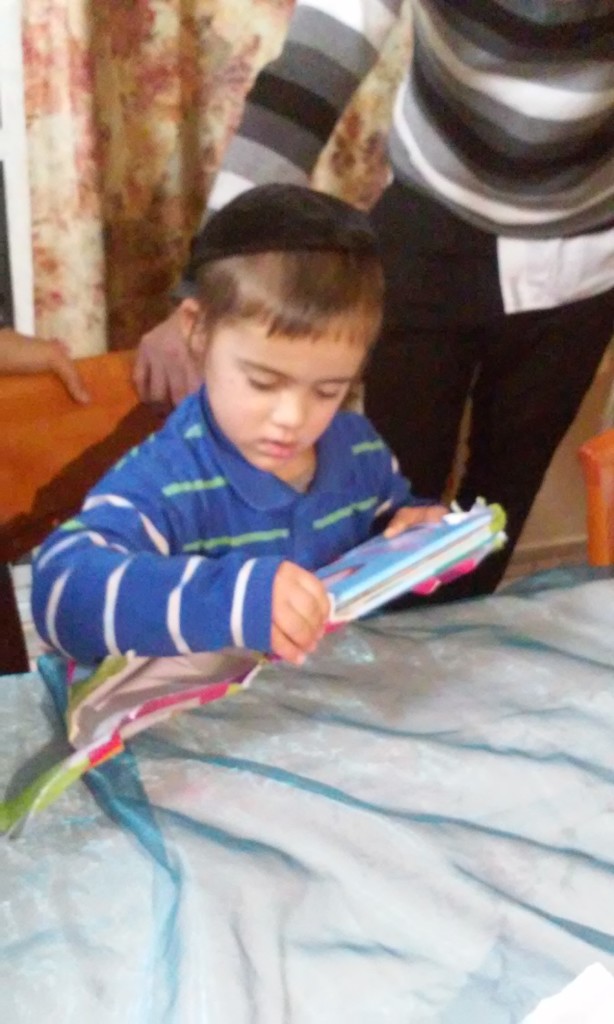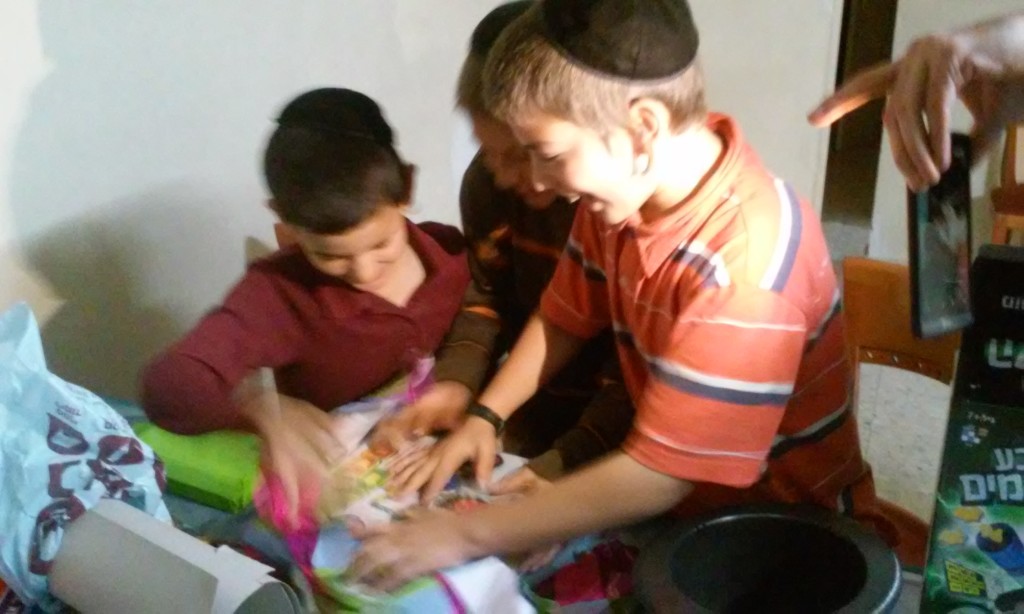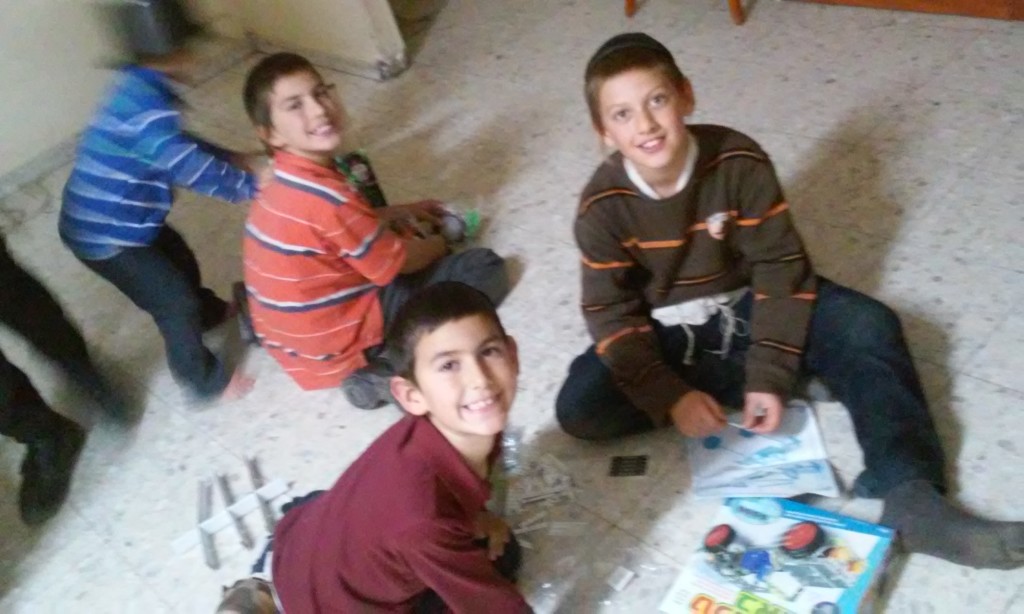Someone asked me about my gift giving policy on Chanukah. What we do is more of a position than a policy and nothing is written in stone but I’ll share what we do and why!
When we moved to Israel five years ago, we decided to deliberately shift our policy regarding presents on Chanukah. In the US we had access to fantastic stores where we could easily find great quality gifts for our kids without spending much money. Our kids also bought gifts for one another, which they could frugally do by shopping at thrift stores. As a result of planning ahead and shopping wisely, gifts weren’t a financial strain at all.
But.
Do you know how many gifts are generated by one set of parents, two sets of grandparents, and five or six siblings buying for each other? There are only eight days of Chanukah! And it seemed that every person was getting at least one gift on every night. That meant a lot more stuff to store, maintain and clean up.
While for the most part the gifts were appropriate and not overdone, it still added up to too much. I was experiencing the law of diminishing returns – the more they got, the less they appreciated what they were given. And that made it very hard to keep the focus of Chanukah on the deeper messages of the day rather than on the presents.
We took the opportunity when we moved overseas to make a change. No more Chanukah presents or birthday presents. Instead the focus is on time together as a family – lighting menorahs, singing and dancing together, then spending time afterward with a family game or activity of some sort. We strive for our Chanukah together to be simple and warm and connected, with the only thing missing is the focus on “What are you going to give me?” (Note I said we ‘strive’ – that doesn’t mean we always accomplish it! :))
Are you wondering if my poor kids ever get any gifts at all?!?

They do! I try to minimize consumerism and clutter, but I also enjoy getting my children presents. If there’s something I want to buy for them, I buy it and give it to them. Whenever. Just because. They receive gifts and are glad to get them, but birthdays and holidays don’t become associated with “whaddya get me?”
This year I had a conflict. I bought some Playmobile when I found them at a good price, which happened to be a week before Chanukah. Since this was the first time buying any, I wanted to get enough to use as props for a variety of play situations. So I bought eight small sets (each set has one figure with one main prop or several very small props – eg a policeman with a dog, a pirate with a treasure chest and some tiny rocks to go in the chest), one medium set that included a four wheeled vehicle and a larger set that included two vehicles. Those sets were to be given to the four younger boys to share. That doesn’t sound overwhelming, right?
My conflict was when to give them these toys. Usually I would give them right when I bought them but it seemed silly to give them such a short time before Chanukah. I decided I would space out the giving of these sets on Chanukah so it wouldn’t be every night, giving the largest towards the end of Chanukah and starting with the smallest sets.
The first night – we gave them three small sets – delightful! So wide eyed, so appreciative, thanking me again and again. Dd20 tells me how sweet they are, and it would be a shame to give them anything else. I knew exactly what she meant. Their eyes were sparkling.
The next night after playing dreidel together, I decided to give one small set and the small vehicle. They knew I was going to give them something the first night and thought it would be two of the smallest Playmobile sets – they were delighted that there were three and now couldn’t believe there was even more! Kids are still very happy.
Night 3 – no gifts, just some chocolate coins. Very pleasant evening.
Night 4 – one game and one small set. While still appreciative, the energy has changed. Observing them, dd16 suggests I shouldn’t give them the rest of the presents that I bought, saying she doesn’t see it making them more happy. I know exactly what she means because I’m thinking the same thing.
There remains one large set that I planned to give on night 6 that I considered the main present, and two small sets I planned to give on the last day, but right now I have a lot of ambivalence about proceeding with that plan. (Edited to add: I decided to give the last gifts during the day time during a relaxed time and this was a great solution! The boys were well-rested, had time to enjoy them for hours and were very appreciative to boot. 🙂 )

I haven’t found an effective way to give kids a number of gifts in a short time period, and keep the excitement and gratitude they experience from being negatively affected. It’s pretty natural that the more kids get, the less appreciative they become and the less they enjoy their gifts. It’s quite a balance!

I love getting my kids things I think they’ll enjoy. I honestly have to hold myself back from buying more than I do. Seriously. Holding back isn’t coming from a place of deprivation or lack but because I don’t know how to give them everything I’d like to give them without them losing something very precious – the ability to deeply appreciate what they have.
Avivah
